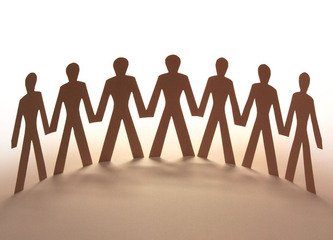There is no right way to do the wrong thing. We spend our lives bumping up against the lessons in those words. Corporate executives of multi-billion-dollar companies who once made multi-million-dollar salaries are spending prison time with those words. Hollywood moguls and powerful politicians have been retired by those words. Spiritual leaders have been defrocked ignoring those words. Doctors, lawyers, accountants, engineers, educators, community leaders, sports and entertainment stars, you, me, our children—no one escapes them. They are simple. They are essential. They are the quality we make of our lives. And they are needed now, more than ever.
As an international ethics consultant and “seasoned” university professor, I feel my job is to start a conversation about what it means to do right in business and in life despite the constant personal, social, economic and other cultural and societal pressures to ignore what is “right” in favor of “success.”
Events around the world, especially here in the U.S. show us repeatedly we need a different and serious conversation about ethics and moral decision-making. We need something that cuts through this erroneous belief that bad ethics are practiced by bad people and good ethics come from the rest of us.
You’re probably familiar with the competitive edge, the cutting edge, and the leading edge. These refer to those rarified spaces in business and science and life, where brand new ideas, new ways of thinking, new technologies spur incredible advances. The Noble Edge is an advance in our character. This is the space where the nobility we are born with flourishes through the agreement of our words and deeds. A place where honesty and integrity always underscore our ethical choices.
In the broadest context, an ethical choice is any decision or action that has an impact on others now or in the future. Face it, apart from possible future environmental impacts, it’s hard to make an unethical choice living alone on a desert island. Our ethics affect others and theirs in turn affect us.
Some believe that ethical choices are relative to whom and what you know and when you know it. This is akin to the idea that “ignorance of the law is an excuse.” If you, in your culture, don’t know the laws or morals of my culture, and vice versa, each of us following our own cultural laws and ethical practices is fine. Whether you want to talk about individuals obeying a corner stop sign or a world at the intersection of climate change, increasing economic disparities, resource depletion, and socio-political and religious turmoil, it’s safe to say we all want to be building trust with one another.
But, we cannot alone decide on what is ethical and what is not. Ethics are a public and communal enterprise. This public debate about what is ethical and what is not, brings alternative needs into the conversation. In essence, the more public the discussion, the wider the circle. If the circle widens far enough, then all those we may have placed in the “them” category become “us.” That thought is so frightening for some that they go to unfathomable lengths, including horrid atrocities, to maintain the status quo.
Changing a paradigm is one of the most significant transformations we make in our lives. We believe in our paradigms so strongly, we even turn unjust “truths” into unjust laws. The segregation laws of the 50’s and 60’s fit this bill well.
Using truth when it benefits us and ignoring truth when it does not is the ultimate ethical gaff. The truth is the truth. The way we use it, if inconsistent, creates the ethical grey areas that muddy the rights and wrongs in our lives. Ethical choices sometimes require sacrifice. This may not always lead to positive feelings for the decision-maker, but it should always lead to positive feelings for those affected by the decision-maker. Perhaps the most useful maxim, in this case, is, ethics are not an exercise of our rights they are an exercise of our virtues.
The call for more universal and less divided ethics grows louder every day. Perhaps the most useful tool in thinking about how to make choices based on a universal morality relies on our capacities to make ethical decisions from an ever-advancing, virtue-driven set of humane values that are guided by our moral development and chosen through an exercise of responsibility-based free-will. This understanding defines our moral progress individually and with one another.
Moral progress requires us to consider our present and our future actions. An understanding of moral progress enables us to consider our impact on the whole. For the long-term survival of family, community, state, nation, and the world we must act responsibly for both ourselves and for our community. Both will flourish if we do a better job at this. Moral progress is the only framework that enables us to consistently consider the equity and justness of the world community and the part each of us plays in it.
No person ever crosses the moral finish line and ends his or her quest to be consistently virtuous. It is a lifelong journey to ever-advance on all three pillars of wisdom- rational intelligence, emotional intelligence, and spiritual intelligence. In other words, knowing the right thing to do, feeling right about what we do, and doing the right thing, sometimes despite what we know or how we feel about it.
Knowledge is not wisdom. How you use your knowledge is an indicator of your wisdom. And what bridges the gap between your knowledge and your wisdom are your ethics.


